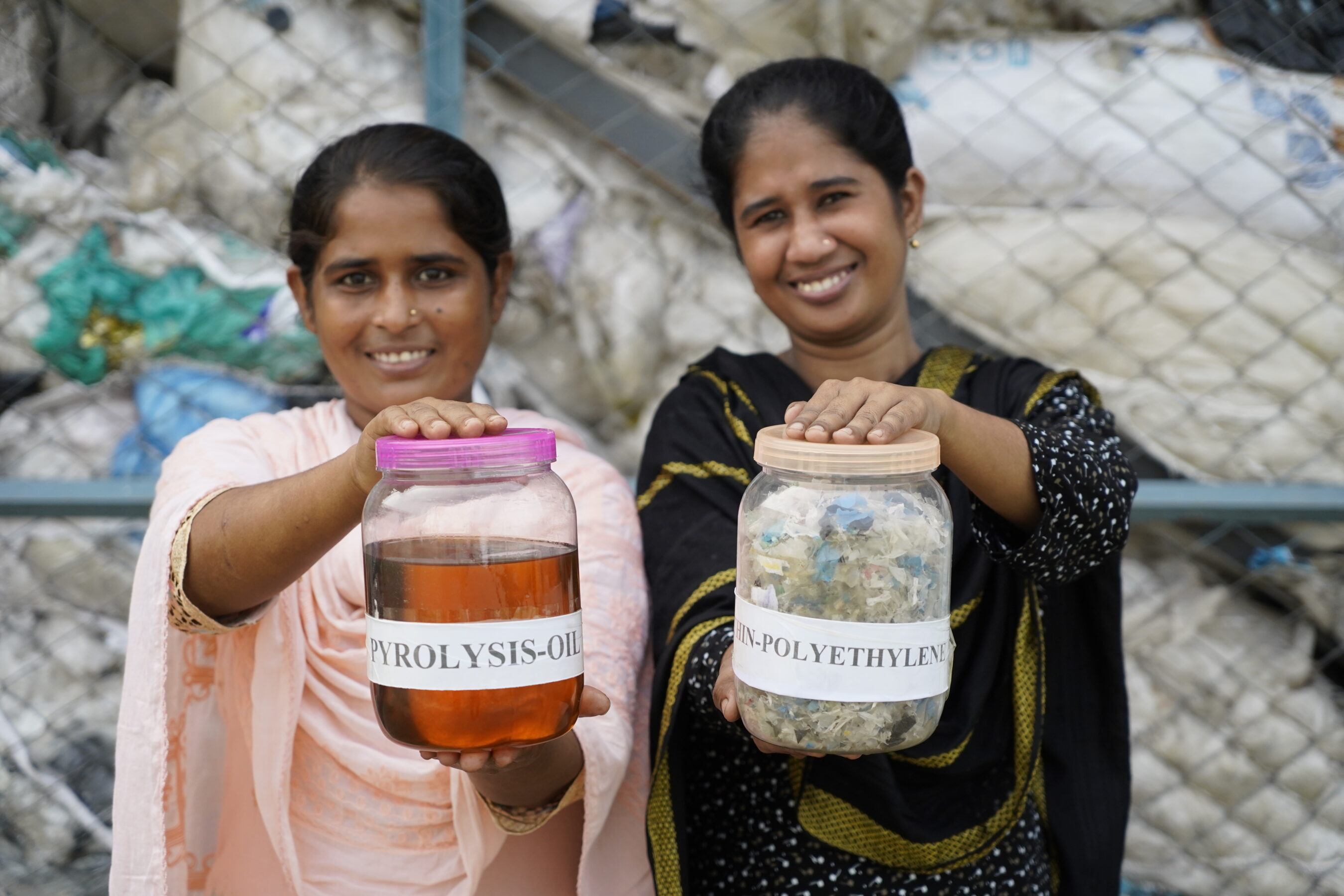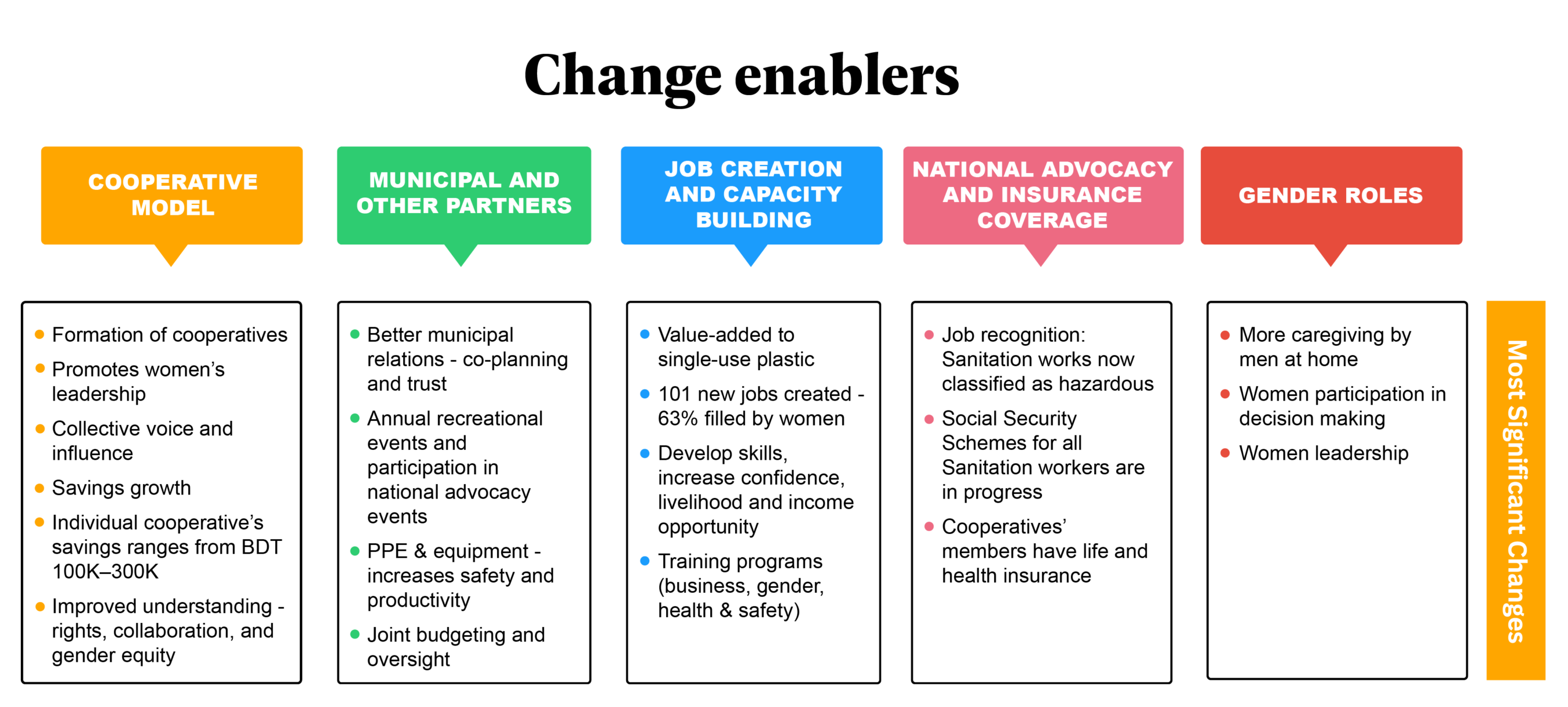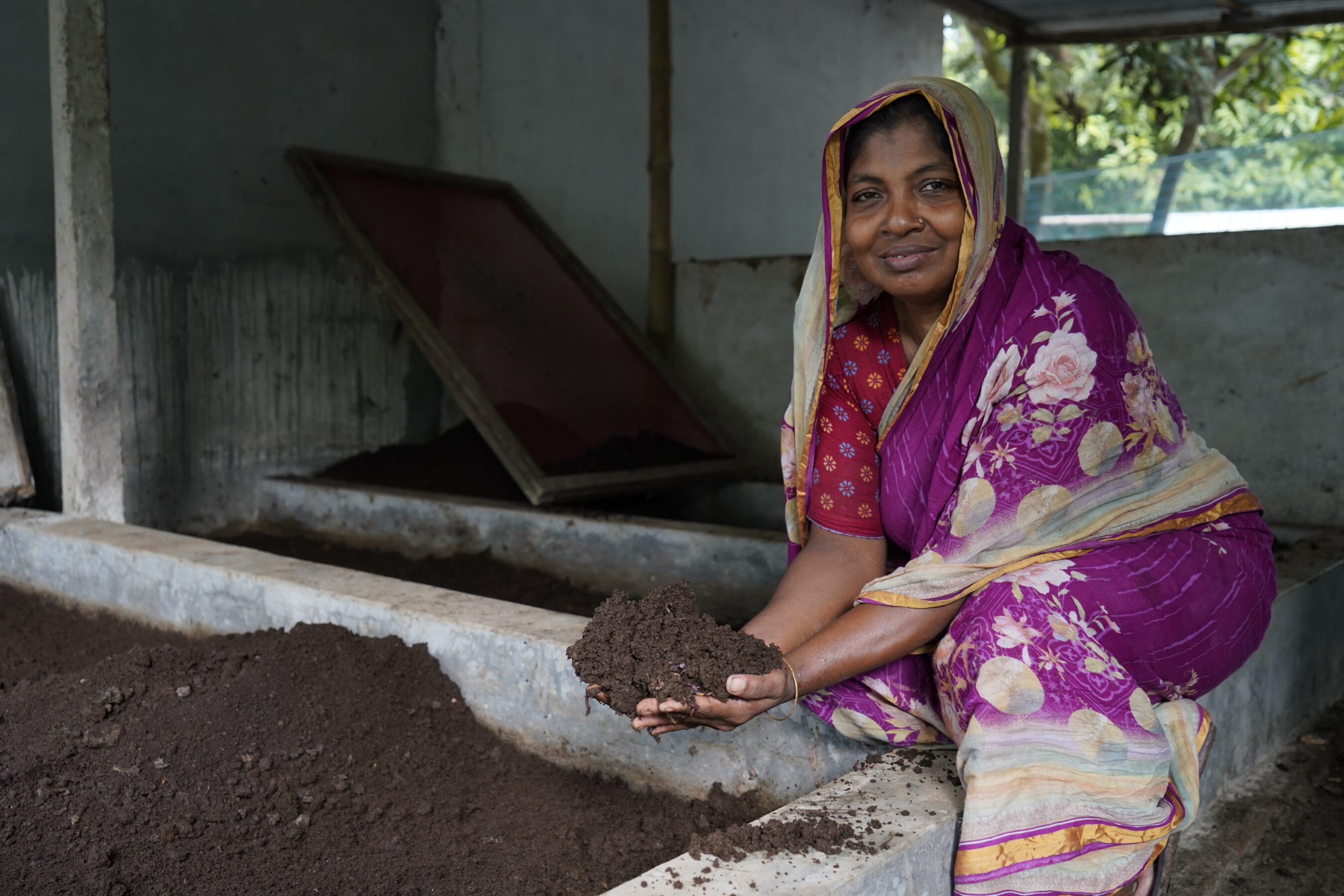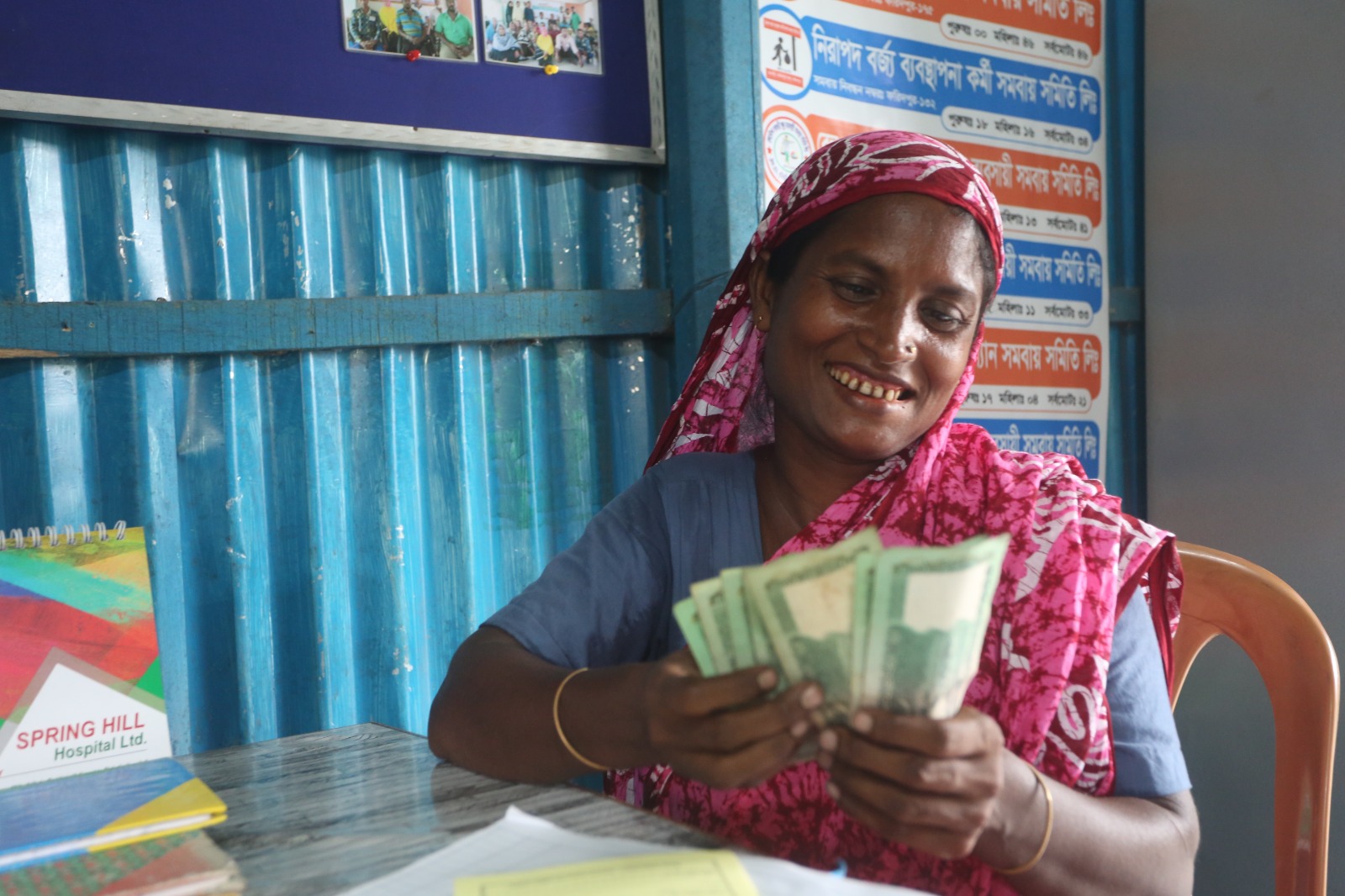From challenges to change: what’s next?
Our initiative, “Increasing Employment by Creating Value from Plastic Waste in Bangladesh”, has proven that an inclusive model can work — increasing income, status, recognition, and resilience for workers.
Yet key challenges remain — wages below the national minimum, gender gaps, and limited access to healthcare, better housing, job benefits, and social protection. Many still lack safe, inclusive workplaces with gender-sensitive facilities such as separate washrooms, changing rooms, and childcare. Market access for circular products and opportunities for recreation or rest also remain scant.
The good news? These challenges are solvable.
The lessons from this phase lay a strong foundation for a more inclusive and transformative next phase: one that could shape the next five years and beyond.
New opportunities in the green and circular economy
Through pilots like plastic collection, pyrolysis, plastic-based furniture, and organic manure production, we’ve learned what works. These insights will guide the next phase: aiming for bigger, fairer, and more lasting impact.




